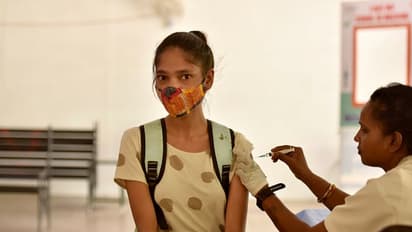WHO flags new Omicron sub-variant BA.2.75 first reported in India

Synopsis
WHO Director-General Dr Tedros Adhanom Ghebreyesus too mentioned the new variant detected in India while underlining the statistic that globally, reported cases had increased nearly 30 per cent over the past two weeks.
The World Health Organisation has flagged the emergence of a new Omicron sub-variant, BA.2.75, traces of which have been found in ten other nations. WHO Chief Scientist Dr Soumya Swaminathan said that the new variant was first reported from India.
Also Read: 'Make in India' success story: Toy imports down 70%, exports up 61%
"There are still limited sequences available to analyze, but this sub-variant seems to have a few mutations on the receptor-binding domain of the spike protein. So that's a key part of the virus that attaches itself to the human receptor. So we have to watch that," she said.
Dr Soumya further said, "It is still too early to know if this sub-variant has properties of additional immune invasion or indeed of being more clinically severe. We don't know that. So we have to wait and see, and of course, we are tracking it, and the WHO committee -- the Technical Advisory Group on Virus Evolution -- is constantly looking at the data from around the world. And at any time, if there is an emergence of a virus that looks very different from a previous one enough to be called a separate variant of concern, then the committee will do that."
WHO Director-General Dr Tedros Adhanom Ghebreyesus too mentioned the new variant detected in India while underlining the statistic that globally, reported cases had increased nearly 30 per cent over the past two weeks.
He listed several factors causing this increase in the number of cases. First, he lamented that testing had reduced dramatically in many countries. Second, he said that new treatments, especially promising new oral antivirals, are still not reaching low- and low-middle-income countries. Third, as the virus evolves, vaccine protection does wane. Decreasing immunity, Dr Tedros said, underscores the importance of boosters, especially for the most at-risk.
Lastly, the WHO chief said, "Each wave of the virus leaves more people with the long-COVID or post-COVID conditions. This obviously impacts individuals and their families, but it also puts an extra burden on health systems, the wider economy and society-at-large. These challenges require action at a global, national and local level."
Also Read: After Mukhtar Abbas Naqvi no Muslim among BJP MPs, Union council of ministers